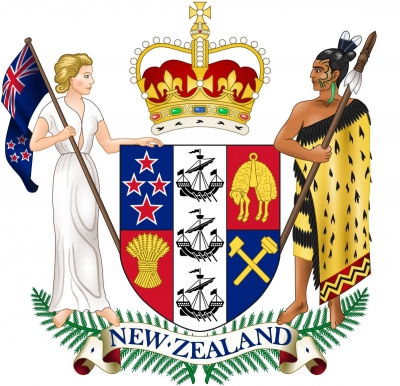The Homosexual Law Reform Act 1986 is a New Zealand law that broadly legalised consensual sex between men as well as anal sex between any parties including opposite-sex partners. It removed the provisions of the Crimes Act 1961 that criminalised this behaviour. The law set an age of consent of 16 for sex between men, the same age as for opposite-sex partners.
The New Zealand Parliament (Māori: Pāremata Aotearoa) is the unicameral legislature of New Zealand, consisting of the Queen of New Zealand (Queen-in-Parliament) and the New Zealand House of Representatives. The Queen is usually represented by her governor-general. Before 1951, there was an upper chamber, the New Zealand Legislative Council. The New Zealand Parliament was established in 1854 and is one of the oldest continuously functioning legislatures in the world. It has met in Wellington, the capital of New Zealand, since 1865.
The House of Representatives normally consists of 120 members of Parliament (MPs), though sometimes more due to overhang seats. There are 72 MPs elected directly in electorates while the remainder of seats are assigned to list MPs based on each party's share of the total party vote. Māori were represented in Parliament from 1867, and in 1893 women gained the vote. Although elections can be called early, each three years Parliament is dissolved and goes up for reelection.
Parliament is supreme over all other government institutions. The legislature is closely linked to the executive. The New Zealand Government comprises a prime minister (head of government) and other ministers. In accordance with the principle of responsible government, these individuals are always drawn from the House of Representatives, and are held accountable to it.
Neither the monarch (currently Queen Elizabeth II) nor her governor-general participates in the legislative process, save for signifying the Queen's approval to a bill passed by the House, known as the granting of Royal Assent, which is necessary for a bill to be enacted as law. The governor-general also formally summons and dissolves Parliament – the latter in order to call a general election.

1986Jul, 9
The New Zealand Parliament passes the Homosexual Law Reform Act legalising homosexuality in New Zealand.
Choose Another Date
Events on 1986
- 25Feb
Ferdinand Marcos
People Power Revolution: President of the Philippines Ferdinand Marcos flees the nation after 20 years of rule; Corazon Aquino becomes the Philippines' first woman president. - 1Apr
Kathmandu
Communist Party of Nepal (Mashal) cadres attack a number of police stations in Kathmandu, seeking to incite a popular rebellion. - 26Apr
Chernobyl disaster
A nuclear reactor accident occurs at the Chernobyl Nuclear Power Plant in the Soviet Union (now Ukraine), creating the world's worst nuclear disaster. - 27Apr
Chernobyl disaster
The city of Pripyat as well as the surrounding areas are evacuated due to Chernobyl disaster. - 2Jul
Augusto Pinochet
Rodrigo Rojas and Carmen Gloria Quintana are burnt alive during a street demonstration against the dictatorship of General Augusto Pinochet in Chile.

 English
English  español
español  français
français  português
português  русский
русский  العربية
العربية  简体中文
简体中文 